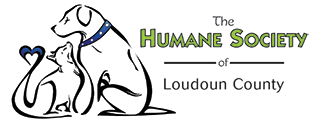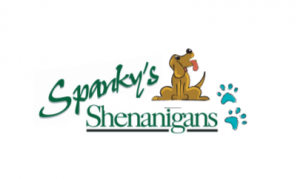


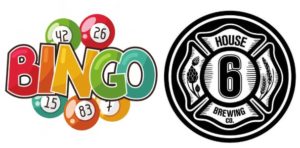
The Humane Society of Loudoun County is excited to partner with House 6 Brewing to raise funds by having Bingo nights! Bring your family and friends to this monthly event where the Bingo Card donations go directly to help animals in Loudoun County.
8 games will be called. A packet for all games can be purchased for $15 or individual regular games are $2 and the final game is $3.
Melissa starts calling Bingo at 6:30 pm. Prizes will be given each game and are donated from House 6 Brewing, HSLC and other local businesses.
HSLC THANKS House 6 Brewing Co. for their support.
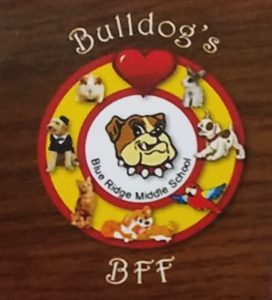
6th Grade Keyboarding students conducted background research, made promotional posters, and wrote to local merchants asking for gift cards to promote the food drive. The 7th and 8th grade Family and Consumer Sciences classes produced cat toys. The 7th grade TechEd classes created a logo for branding purposes and the 8th Grade Manufacturing students are made food and water bowl holders.
They collected 3 large bins of food plus toys and the pet food and water bowl holders.
Great job Bulldogs!
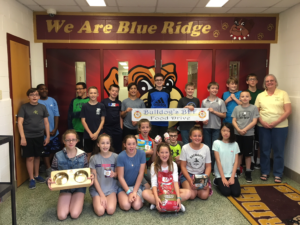
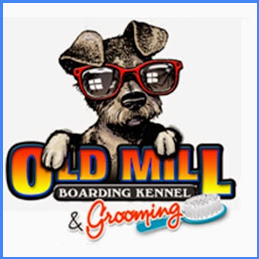
The professionally trained staff at the kennel truly understand the anxiety people can feel when leaving their four-legged members in the care of someone else, and they make the extra effort to provide guests with a true home away from home. Although it is one of the largest pet boarding establishments in the Washington D.C. area, Old Mill has incorporated special features such as soft, residential-grade lighting, spacious sun-filled dog kennels, and sound-dampening acoustic wall panels to ensure maximum comfort.
Another unique factor that sets Old Mill apart from other boarding kennels is the presence of an on-site resident, long-time general manager Timmie Wiley, whose living space is attached to the kennel so he is close at hand when needed. He checks on guests when summer thunderstorms roll through or an alarm goes off, and he is on the scene to make sure that everything is as it should be.
Old Mill Cat Loft manager Shannon Judd has been with Old Mill for over 20 years. “We usually board the HSLC cats 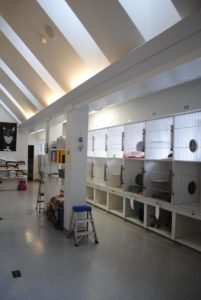 until they have fosters, feeding and caring for them, taking them to the vet if needed, and making sure they get as much human contact as possible.” She said they will take as many cats as HSLC brings, usually about 50 per year, and provide a reduced rate boarding fee.
until they have fosters, feeding and caring for them, taking them to the vet if needed, and making sure they get as much human contact as possible.” She said they will take as many cats as HSLC brings, usually about 50 per year, and provide a reduced rate boarding fee.
The Cat Loft is a unique, state of the art facility featuring two level condos, with or without windows, in addition to skylights, large play rooms, and relaxing music. The Loft can house up to 85 cats at one time. “HSLC gets cats from a range of places—kill shelters, given up by people, feral, it’s a wide variety,” Shannon says. “We put them right in with our other cats (once they have the required vaccinations), and they are usually here a week or two.” In the past, the cats were with Old Mill for many months, and she attributes the shorter stays to more fosters and adoptions. “It was nice to see the same faces when we kept them longer, but this is not a place for them to live, and the quicker turnaround has been great.”
In addition to providing support with socialization, evaluation, space and care at reduced costs, Old Mill goes above 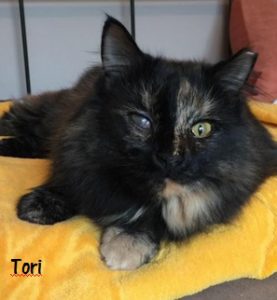 and beyond to assist HSLC with cats who may have issues finding homes. One of the cats who benefited from Old Mill’s dedication is Tori, a kitten from the first mass spay/neuter clinic sponsored by HSLC who ended up with a chronic eye problem. For almost a year, they medicated her two to three times per day and saved her good eye. Once the condition was under control, a foster took her in and ended up adopting her—a happy ending for all.
and beyond to assist HSLC with cats who may have issues finding homes. One of the cats who benefited from Old Mill’s dedication is Tori, a kitten from the first mass spay/neuter clinic sponsored by HSLC who ended up with a chronic eye problem. For almost a year, they medicated her two to three times per day and saved her good eye. Once the condition was under control, a foster took her in and ended up adopting her—a happy ending for all.
Millie is another success story. After being diagnosed with cancer, she bonded with another HSLC cat at Old Mill and ended up living far beyond her prognosis. According to Shannon, “We do it because we have the space and it helps the community. We will always find a way to support the cats from HSLC, even if we’re booked.”
In 2017, HSLC found homes for a record number of cats and dogs. It is thanks to collaboration from partner agencies such as Old Mill that we are able to continue in this important mission, all for the love of animals.
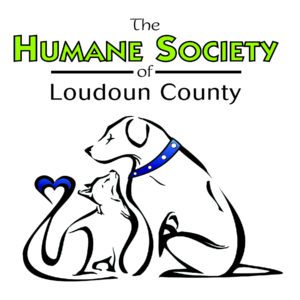
Each Humane Society is an independent organization; “Humane Society” is just a descriptive word — like the word ‘bank’ is in US Bank and Bank of America. They are not connected to each other. It can be confusing!
Many people even mistakenly think that the Humane Society of the United States runs all humane societies. They do not! They do help animals through legislation and in disasters, but do not have a shelter themselves.
Some Humane Societies, like the Humane Society of Loudoun County (HSLC), are “limited admission”. Limited admission organizations sometimes have their animals for many months, and use foster homes. That means they do not have to euthanize animals to make room for new pets they take on. And many, like HSLC, have other programs that help the local animal population, like a pet pantry (Loudoun Pet Pantry) so families in need don’t have to surrender their pets simply because they can’t afford to feed them, partial help when medical emergencies arise, and resources for behavioral issues. The Community cat program is major part of HSLC, helping to reduce the numbers of feral cats while improving their health and quality of life.
And some Humane Societies are “open door” with animal control contracts, just like a city shelter, so they do euthanize to make room. Many “open door” humane societies run programs that have helped reduce pet overpopulation in the cities they serve. They may have the pets for many weeks, and know more about their behavior and health than a city shelter.
So it’s important to understand the nature of your local animal rescues and support them for the benefit of your community. We all work together to help animals but we are separate, independent organizations.
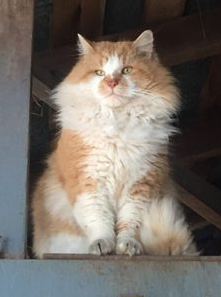
Our TNR program can help if you know of any Community Cats or help take care of a feral colony. Our volunteers will help by humanely Trapping the cats, transporting them to our vet partners, where they will be vaccinated, microchipped and Neutered or spayed. Then after a day or two of recovery the cats will be Returned to their colony. Afterwards, the cats live healthier lives without the unwanted behaviors associated with unfixed cats.
THERE IS NO CHARGE FOR THIS SERVICE.
TNR is a core component of the No Kill Equation and helps reduce the overpopulation of community (feral) cats. We don’t want anyone to be afraid to ask for help because they can’t handle the financial burden of vaccinating and neutering multiple cats.
If you need help with Community Cats, you can fill out a TNR request form HERE
We also have a Working Cats program to relocate cats that are in danger to new homes in barns, wineries, breweries, greenhouses, sheds, garages or other suitable places. OUR WORKING CATS PROGRAM IS ALSO FREE OF CHARGE.
To fill out a request for Working Cats, fill out an application HERE
If you’d like to volunteer to help our TNR or Working Cats programs by Trapping, Transporting, helping our various Colony Caretakers, or to help get Working cats relocated, email us at helpanimals@humaneloudoun.org.
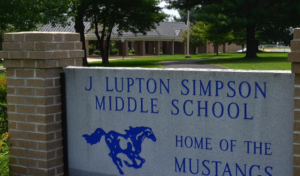
The Family and Consumer Sciences (FACS) 8th grade classes at J.L. Simpson Middle School in Leesburg invited HSLC to help them with their Citizenship Unit. Jennifer Allen, middle school FACS teacher, asked us to be part of their learning experience to describe what our organization is, who we help, the current programs we are working on, and how middle school students might get involved. After HSLC and other organizations speak to the classes over the course of a couple of weeks, they will develop a presentation and propose a project to complete as a volunteer effort.
HSLC president, Juanita Easton, spoke with the two classrooms of 20 students each on Oct 3rd. They were interactive experiences with the students following the presentation with questions about animal care, adoptions, fostering and sharing stories of their animal experiences. She left them with the organization brochures, information on how to “be a voice” for animals in need of help, a list of suggestions on how the students can help animals at school, their neighborhoods, and around the community, in addition to a list of possible careers that involve animals.
The youth of our communities are the future so it is always a privilege to help them understand how they can be involved with the welfare of animals.
The HSLC Humane Education Program is available to all youth and adult groups, such as classrooms, after school programs, scout troops, and community organizations. Contact us at helpanimals@humaneloudoun.org if you would like us to address your group.
